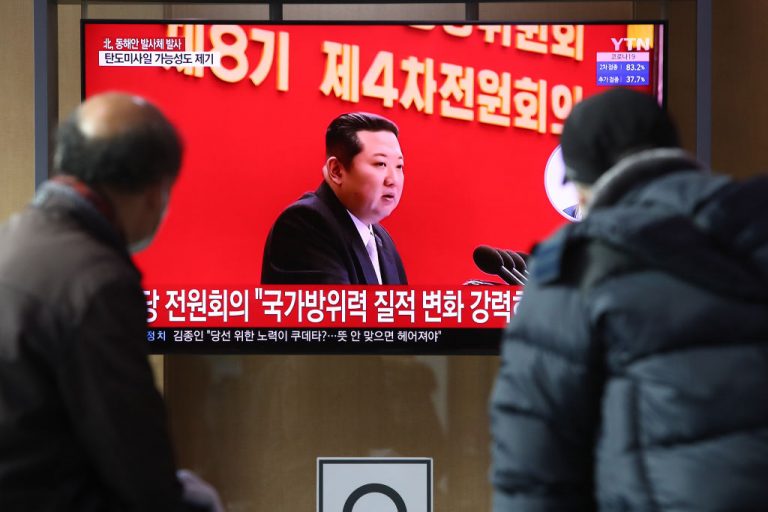North Korea has indicated that it is considering restarting long-range and nuclear weapons tests. According to Pyongyang, the tests will be conducted to prepare the country for “confrontation” with the United States.
Pyongyang had paused its nuclear and long-range missile tests in 2017 after leader Kim Jong-Un and U.S. President Donald Trump had a couple of talks to work out an agreement beneficial to both parties. But two years later, the talks collapsed, with neither side agreeing to a solution. Though Washington has reached out to Pyongyang for more negotiations on the issue since then, the North Korean regime has rebuffed the advances.
In the meantime, Pyongyang has restarted some of its missile tests, including what some say are hypersonic missiles. This has created instability in the region, with countries like South Korea and Japan raising concerns. Washington recently imposed new sanctions on the nation to curb North Korea’s activities. In response, Pyongyang is committing to restart its nuclear tests as well as testing long-range weapons that can potentially reach American soil. The North Korean regime called the U.S. sanctions a “provocation.”
On Jan. 19, Kim Jong-Un convened a meeting of the state politburo which proposed “promptly examining the issue of restarting all temporally-suspended activities.” The politburo called for making “thorough preparation” against a potential long-term confrontation with “U.S. imperialists.” To support its view, the politburo pointed to the United States deploying weapons in the region, conducting joint drills with the South Korean military, and imposing sanctions on Pyongyang.
“The hostile policy and military threat by the US have reached a danger line that cannot be overlooked anymore… [North’s top officials] unanimously recognized that we should make more thorough preparation for a long-term confrontation with the US imperialists,” state-backed media outlet KCNA reported.
Success
You are now signed up for our newsletter
Success
Check your email to complete sign up
On Jan. 17, North Korea tested two short-range ballistic missiles, which is the fourth time this year that Pyongyang has carried out such tests. The two projectiles are said to have hit “their precise target in the East Sea.” According to Nobuo Kishi, the Japanese Defense Minister, the two missiles were fired from North Korea’s western region three minutes apart. The missiles are estimated to have flown at a maximum altitude of 30 miles and a distance of 186 miles.
“[Pyongyang] appears to be signaling it will not be ignored and will respond to pressure with pressure… North Korea is trying to lay a trap for the Biden administration… It has queued up missiles that it wants to test anyway and is responding to US pressure with additional provocations in an effort to extort concessions,” Leif-Eric Easley, associate professor of international studies at Ewha Womans University in Seoul, told CNN.
In an interview with Reuters, Jean Lee, a fellow at the Washington-based Wilson Center, warned that Kim Jong-Un will use every opportunity he can muster to justify the North Korean regime’s weapons testing. “We should brace for more saber-rattling designed to create a warlike atmosphere — and possibly more provocation testing,” Lee said.
However, some experts feel that it is unwise to take North Korea’s rhetoric about its weapons test at face value. In an interview with NPR, Lee Ho-ryung, a researcher at the Korea Institute for Defense Analyses, a government think tank in Seoul, pointed out that although North Korea presents its weapons tests as a “reaction to events” like the South Korean presidential election, the actual fact is that the regime is only testing weapons according to an existing plan.
“It usually takes about three years from planning a weapon’s development, to testing it… So, to calculate back, North Korea has used the time since the breakdown of the 2019 Hanoi summit to develop these weapons,” Lee said.


















